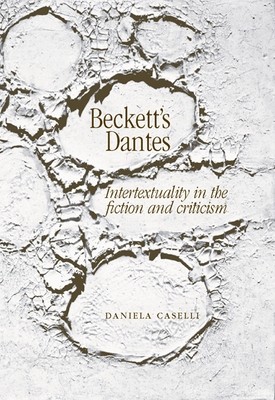
- We will send in 10–14 business days.
- Author: Daniela Caselli
- Publisher: Manchester University Press
- ISBN-10: 0719071569
- ISBN-13: 9780719071560
- Format: 16.5 x 24 x 2.4 cm, hardcover
- Language: English
- SAVE -10% with code: EXTRA
Reviews
Description
Beckett's Dantes: Intertextuality in the fiction and criticism is the first study in English on the literary relationship between Beckett and Dante. It is an innovative reading of Samuel Beckett and Dante's works and a critical engagement with contemporary theories of intertextuality. The volume interprets Dante in the original Italian (as it appears in Beckett), translating into English all Italian quotations. It benefits from a multilingual approach based on Beckett's published works in English and French, and on manuscripts (which use English, French, German and Italian). The book is aimed at the scholarly communities interested in literatures in English, literary and critical theory, comparative literature and theory, French literature and theory and Italian studies. Its jargon-free style will also attract third-year or advanced undergraduate students, and postgraduate students, as well as those readers interested in the unusual relationship between one of the greatest writers of the twentieth century and the medieval author who stands for the very idea of the Western canon.
EXTRA 10 % discount with code: EXTRA
The promotion ends in 16d.11:32:59
The discount code is valid when purchasing from 10 €. Discounts do not stack.
- Author: Daniela Caselli
- Publisher: Manchester University Press
- ISBN-10: 0719071569
- ISBN-13: 9780719071560
- Format: 16.5 x 24 x 2.4 cm, hardcover
- Language: English English
Beckett's Dantes: Intertextuality in the fiction and criticism is the first study in English on the literary relationship between Beckett and Dante. It is an innovative reading of Samuel Beckett and Dante's works and a critical engagement with contemporary theories of intertextuality. The volume interprets Dante in the original Italian (as it appears in Beckett), translating into English all Italian quotations. It benefits from a multilingual approach based on Beckett's published works in English and French, and on manuscripts (which use English, French, German and Italian). The book is aimed at the scholarly communities interested in literatures in English, literary and critical theory, comparative literature and theory, French literature and theory and Italian studies. Its jargon-free style will also attract third-year or advanced undergraduate students, and postgraduate students, as well as those readers interested in the unusual relationship between one of the greatest writers of the twentieth century and the medieval author who stands for the very idea of the Western canon.


Reviews